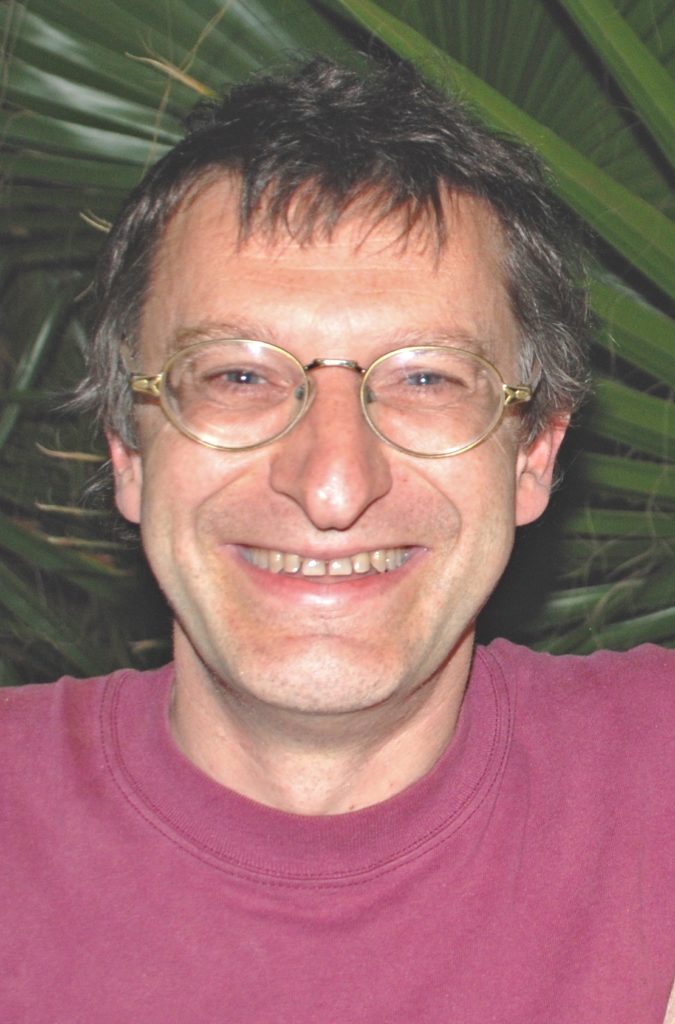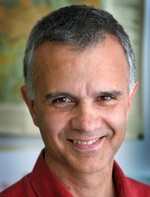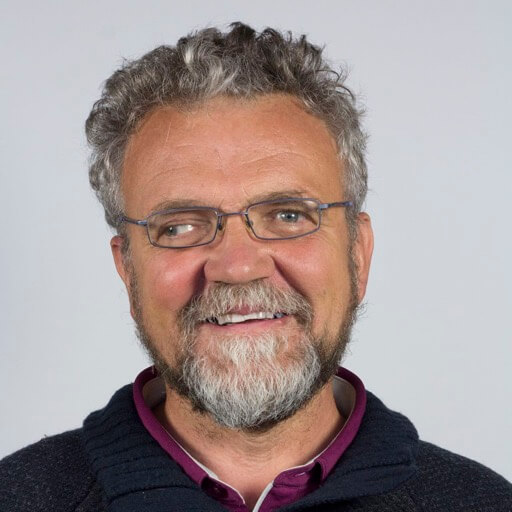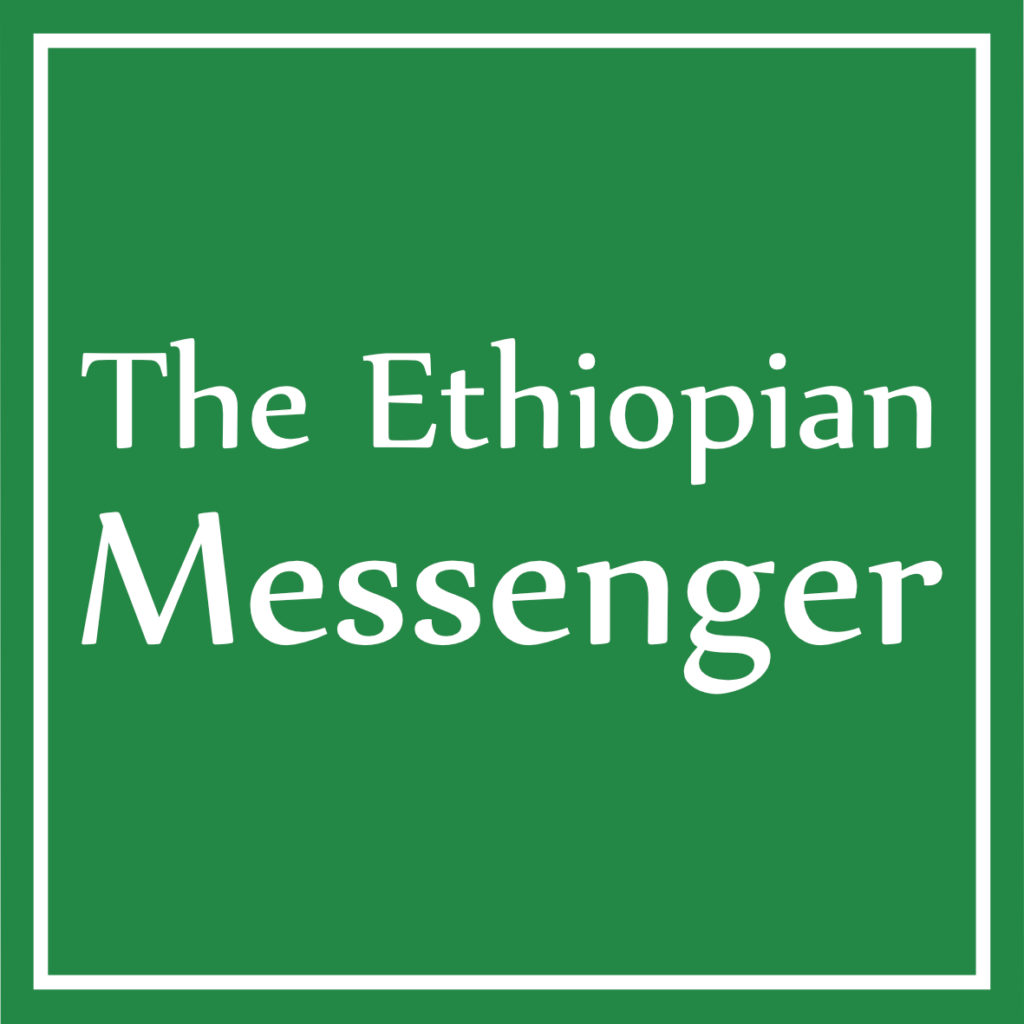This article was originally published in the 6th issue (April 2017) of The Ethiopian Messenger, the quarterly magazine of the Embassy of Ethiopia in Brussels.
After two successful Institutional University Collaborations (IUCs) between the five Flemish universities and Mekele and Jimma universities, two new IUCs are now on track with Bahir Dar and Arba Minch universities.
This cooperation is coordinated through the Flemish Interuniversity umbrella organization for development cooperation, VLIR-UOS. The VLIR-UOS cooperation framework includes the provision of an extensive scholarship scheme and implementation of inter-university projects that are formulated to develop the teaching, research, institutional management and community services of partner country universities. The projects support the development of high-level scientific knowledge and skills through the collaboration between Belgian and Ethiopian universities, among others. This unique arrangement has enabled Flemish Universities to share and transfer their expertise, experience and know-how in fields like agricultural technology, public health, water and sanitation sciences, natural resource conservation with two Ethiopian
Universities, Mekele (2003-2014) and Jimma (2006- 2016), selected under the first Institutional University Collaboration (IUC) framework. Today, this first IUC is currently in its phase-out, but cooperation will continue for research and educational capacities of Jimma University. Two new IUC’s have also been approved between Bahir Dar University and Arba Minch University and the five Flemish universities, coordinated by Ghent University and KU Leuven respectively.
We interviewed Pr. Dr. Luc Duchateau (Gent University), Pr. Dr. Roel Merckx (Leuven University) and Pr. Dr. Jan Nyssen (Gent University) to ask their assessments about these past programs and their insights about the future IUCs and cooperation.
Pr. Dr. Luc Duchateau: “We are happy to collaborate and support Ethiopian universities”

Fields of research: statistics and biostatistics, malariology, Coordinator of
the IUC with Jimma University.
WHAT ARE THE AREAS OF COOPERATION FOR THE IUC BETWEEN JIMMA AND FLEMISH UNIVERSITIES?
The Institutional University Collaboration project between Jimma University and the different Flemish universities under the umbrella of the Flemish Interuniversity Council (VLIR-UOS) lasted from 2006 to 2016 and is curretnly in its phase-out. The program included many projects across about 30 disciplines, each involving a number of PhD students. The general focus of these projects was about remediating the side-effects of the Gilgel Gibe Dam. Fifty PhDs will have been awarded in the framework of this program, some from Flemish universities, and some jointly between Jimma and Ghent university. We had seven projects:
1. Zoonotic and animal diseases with subprojects on trypanosomosis, mastitis, animal nutrition and aquaculture. Tryanosomosis or sleeping sickness is epidemic in cattle in many locations. The PhD students studied the resistance of the parasite against trypanocidal drugs. Drug resistance abounds but nonetheless the drug still helps an animal to deal with the disease and survive.
2. Child health and nutrition with sub-projects on food supplement and psychometric stimulation. Malnourished children obviously need food supplementation but also psychometric stimulation, as starvation also leads to mental retardation.
3. Ecology with sub-projects on forest and aquatic ecology and environmental sanitation. One of the sub-projects focused on biodiversity of coffee. In fact, the genetic pool of coffee is more diversified in Ethiopia than in the rest of the world, as coffee originates from Ethiopia! It is important to conserve the gene pool.
4. Infectious diseases with sub-projects on tuberculosis, HIV and malaria, soil-transmitted helminths (worms) and drug quality. The malaria research led to an important finding that completely changed the way the malaria vector is controlled in Ethiopia. It was shown that the DDT insecticide used until then against the malaria mosquito was inefficient because the mosquito was completely resistant and therefore was banned in a new regulation by the Health Ministry. Research is continuing now to find new ways of controlling the malaria mosquito, mainly based on zooprohylaxis. Although it is often assumed that dams like the Gilgel Gibe dam act as large breeding sites for mosquitoes, the Gilgel Gibe dam had no impact on malaria incidence.
5. Soil with sub-projects on soil fertility and sedimentation. Erosion makes that rivers are filled with sediment which eventually can lead to siltation of the dam. PhD students investigated which locations contributed most to this siltation process and worked out solutions to avoid excessive sedimentation and erosion, for example by growing special trees or grasses to fortify the river banks.
6. Statistics. A master of biostatistics was set up at Jimma university, which was the first to be established in Ethiopia. About a hundred students have already finished their Masters in this programme.
7. ICT and library. Due to the trainings set up in this project, Jimma University is at the forefront of the country when it comes to ICT.
The IUC-JU programme also established local PhD schools, notably in ecology, horticulture, infectious diseases and nutrition, so that academic staff members can also obtain their PhD in Ethiopia or a double-degree PhD from Jimma University and a Flemish university.
The IUC-JU programme also built substantial infrastructure. In addition to ICT, we also established a national lab
in tuberculosis, in collaboration with the Ethiopian government, a molecular biology lab, a malaria lab and a drug quality lab that is already WHO pre-qualified and should be soon qualified by WHO to test the quality of drugs in the whole country. It will be a decisive step for the Ethiopian pharmaceutical sector, since it will be the first WHO-certified lab in Ethiopia.
The Ministry of Education wanted to go ahead with such activities after the IUC-JU programme was finished and proposed a Tripartite Agreement between Jimma University, Ghent University and the Ministry of Education of Ethiopia. This agreement will enable to start up joint PhDs where the Ministry of Education of Ethiopia sponsors the PhD student. Within 2017, about 25 students will start but the number will grow to about 100 students within the coming four years. PhD students will be selected from the academic staff of all Ethiopian universities, whereas the local supervisor will come from Jimma University.
WHAT ARE THE MUTUAL BENEFITS?
The IUC-JU programme has given me a lot of scientific and human joy. Every time again it gives deep satisfaction to have an Ethiopian student finishing his PhD knowing that it will strengthen Jimma University. Much of the research that is done in Ethiopia is quite unique and it allows us also with simple interventions to have much more impact than our research results in Belgium typically have. It is also benefiting Ethiopia, where PhD students are worth gold. We are therefore happy to collaborate and support Ethiopian universities in the two areas in which Flemish universities excel: research and teaching.
Pr. Dr. Roel Merckx: “The impact of some projects has been enormous”

the IUC with Arba Minch University.
WHAT ARE THE COOPERATION’S PROJECT AREAS?
The main goal is to address the needs of communities in the Southern Rift Valley of Ethiopia, and improving ecosystem services.
The VLIR-UOS has a specific framework. It is about cooperation, not about organizing a paid course. All parties have a stake in the programs. For the Belgian side, the essential part is the academic research in scientific fields such as science, agronomy, food security, water resources, environmental conservation where the challenges are huge in Ethiopia. The conflict between an increasing population, expansion of farmland and conservation of natural ecosystems, puts pressure on resources like water which are very important in Ethiopia. It is natural that we seek cooperation with academics to jointly set up research programmes that are of benefit for both parties.
The IUC programme with Arba Minch University focuses mainly on capacity-building. The number of universities is increasing rapidly in Ethiopia. However, the number of trained staff is limited. Training in order to organize education which is research-based is the main reason for setting up this cooperation. In the first year, there will be 13 PhD students in the program, and they are the core of the program. In these programs, students focus on field research in Ethiopia on – among others −nature conservation, agriculture, soil science, sociology and anthropology. They do their experimental work and survey in Ethiopia. Hence, their stay in Belgium is limited, first because it is expensive, and secondly because the goal is to empower them to do research in their country. This is why this program is so relevant for the Belgian development cooperation: the money is going to those who need it.
WHAT ARE THE MUTUAL BENEFITS?
Benefits for universities in Belgium are real: expanding knowledge on major global challenges, expanding research capacity on the ground and learning how to ask the right questions. We are dependent on the Ethiopian partners and PhDs to teach us and introduce us to the context. On our part, we can share our experience about scientific standards and expose them to state-of-the-art technologies and information. This turns this partnership into an excellent symbiosis.
I see another important benefit: thanks to this kind of exposure, I think that my teaching to Belgians students is improving. The relevancy and quality of what I teach is improving, because of this field experience on the topics. I can teach based on real-life situations and personal impressions. Only for this aspect already, it is really important that Belgium continues sponsoring this programme, because it lifts the quality of higher education in Belgium to a higher level.
VLIR-UOS programs are rather modest finance-wise compared to large programs such as those set up by USAID or the Bill and Melinda Gates Foundation. We have a budget of 500,000 euros per year for six different projects. It is comparatively little money in comparison with our ambitions. Yet, the money does not tell the complete story as our programs are based on large amounts of good will and commitment.
The IUC with Mekele that started 12 years ago has been a real success in all the mentioned aspects. Soon, our university will visit Mekele to discuss continuing collaboration, for instance with all the KU Leuven alumni.
DID PAST PROJECTS SUCCESSFULLY IMPROVED THE LIVES OF THE COMMUNITIES?
There is a well-documented story of the VLIR-IUC program with Mekele to improve food-security. The impact has been
enormous. It changed the university, boosted the research findings and it changed the life of communities. Local people are still very grateful when we pass by. Before this program, there were each year about four or five months where the food was not sufficient in these communities. Today, this problem is resolved, and they can grow enough food to sell the surplus.
HOW WOULD YOU DESCRIBE THE DEVELOPMENT OF THE ETHIOPIAN ACADEMIC SECTOR?
I have seen the government’s five-years plan for the education. It is very ambitious and based on correct principles like gender equality and increasing the number of PhDs in the professorship. It is a very good policy document. The challenges, of course, are huge: the number of people wanting to have a degree is enormous, and there are concerns on how to make sure there is a sufficient number of qualified teachers. Kenya, for example, has a similar problem. It is not easy to fill the positions with qualified professors. But the policy document is very good, like other policies of the government: the swift reply to the invitation from the United Nations Framework Convention on Climate Change (UNFCC) to submit the so called ‘Intended Nationally Determined Contributions’ (INDC) to substantially reduce its Greenhouse Gas emissions was commended by Europe.
From my limited experience with Arba Minch University so far, I can tell you that I am quite impressed from the level of cooperation. The promises and the deadlines are being kept by our Ethiopian partners, and this is quite promising.
I have experience with several programs in Vietnam, Congo, Tanzania, Kenya and Nigeria among others. In terms of making solid appointments and agreements, as well as to have committed responses, Ethiopia is among the best in Africa. Of course, like in Kenya, it depends from case to case. Ethiopia still has a huge gender imbalance. But so far, I am very pleased with the way we cooperate. In other countries, it can be slower and more difficult.
Pr. Dr. Jan Nyssen: “Universities in Ethiopia have developed tremendously”

WHAT ARE THE AREAS OF COOPERATION FOR THE IUC BETWEEN BAHIR DAR AND FLEMISH UNIVERSITIES?
I would say there are two main goals: one goal is to have a cooperation between our university and Ethiopia, and a second goal is to improve the research capacity. Bahir Dar University for example has a large staff, but relatively few of them have a PhD degree. In this cooperation, we are going to train 17 Bahir Dar University staff to the level of PhD. The research itself is mostly related to development issues. Many research projects are related to the land, to the water, to the socioeconomic, environment and food processing. Therefore, this research has a direct relevance for the community and contributes to a sustainable livelihood, while on the same time uplifting the capacity of Bahir Dar University.
For example, we had a project with Bahir Dar University about Lake Tana where we tried to calculate the water balance: how much water is coming in, how much is evaporating, pumped out, or diverted for hydro-power? Another question was: how much sediment is entering into the lake? Two PhDs and six MSC holders worked on the question. At the end, we were able to organize a big international academic conference on the Lake Tana to show the findings. More than 100 academic guests and other stakeholders came from Ethiopia and many other countries to attend the conference, and a book was published, both in Amharic and in English. This conference was an opportunity to share the outcome of our research both to the decision makers, other stakeholders and to the scientific community.
WHAT ARE THE MUTUAL BENEFITS?
The professors involved in such a program are interested to contribute to the development of Ethiopia and generally they are also «Africa-minded», with a personal commitment to make things better. But we also see a lot of opportunities, for the research that we could not do otherwise. It enables us to do research about the landscape, to get a real natural environment. For example, opening a soil profile for some research is very difficult in Belgium, both to find a good location and in terms of procedures. In Ethiopia, the landscape is very favourable for this kind of research and the observation can start very soon if you have good communication with the local people.
As a university, cooperation with Ethiopia is very positively evaluated, as we get very good MSc and PhD students. This is important, since we have our objectives like having strong research results, publishing papers, etc. PhD candidates
from Ethiopia have a good success rate. It has maybe to do with the fact that Ethiopia is a big country, where the selection is very competitive, with high selection criteria.
HOW WOULD YOU DESCRIBE THE DEVELOPMENT OF THE ETHIOPIAN ACADEMIC SECTOR?
Since I started visiting Ethiopia in 1994, universities have developed very rapidly, in line with other developments in society. The difference between that time and today is tremendous. When we started working in the rural areas in Ethiopia, at that time, we only found 3rd or 4th grade students to assist us. Today, university students are taking part in our research. There is a school in every village now, and girls go to school although they still drop out a bit early.
The fast development of the Mekele University is a good example. Twenty-two years ago, they were lecturing under the tree. Today, they have numerous university buildings, and the campuses keep on expanding. At the time, the professors were lecturing based on case-studies from the US, while today they have case-studies and examples from Ethiopia. In general, you see there is a lot of capacity in the country. You see it when you travel: there are dams, electricity, roads. A lot of people are being trained. In the field of agriculture for example: the mapping of the soil fertility in the country enables fertilizer recommendations to the level of every farmland. Such developments indicate that there are trained people available to support it. Of course, this fast development comes with challenges. The intake of students is increasing tremendously, maybe even too fast; the buildings are not sufficient for the needs. When you enter a university, you have the feeling to enter a building site, with lorries driving up and down. The expansion is continuous, but of course the infrastructure needs to be built fast to meet the needs.




